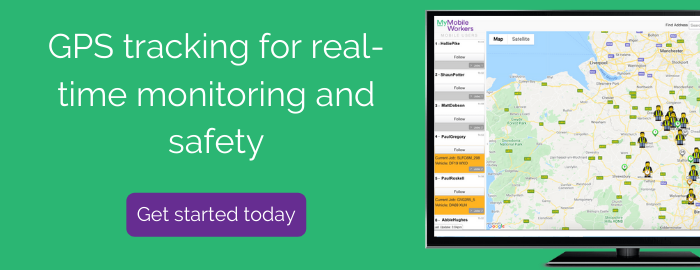Consistently failing to deliver on time is a great way to create the worst possible reputation for a mobile services business.
-1.png?width=606&name=Copy%20of%20fwsc%20(3)-1.png)
You know how it works. An order is placed; a delivery date and an ETA (Estimated Time of Arrival) is provided - often something frustrating vague such as ’between 9am and 5pm’.
The customer then waits around all day expectantly and…it just never arrives.
From an operational perspective, there’s probably a perfectly reasonable explanation but for the customer or client, it’s simply infuriating - particularly when somebody has taken time off work to be home for a scheduled delivery time.
A survey by the Citizens Advice found that 31 percent of consumer complaints are triggered by a combination of inaccurate information and late deliveries.
Knock-on effects
It’s particularly damaging when it’s a business client with inaccurate delivery times able to play havoc with a supply chain, triggering a domino effect of delays and wastage.
The outcome for a mobile service provider is a whole range of harmful consequences - complaints, compensation claims and the reputational damage of an online backlash - poor user ratings, angry social media comments.
A Voxare Research study found that more than two-thirds (69 percent) of customers say they won’t use a business again if they experience more than a days delay between an ETA and the actual time of delivery.
What provokes such negative reactions isn’t the overall length of time it takes to deliver a product or service - it’s the inaccuracy of the estimation they have been given.
Smarter handling of ETAs
The challenge facing any manager of a mobile workforce is how do you provide accurate information when there are so many factors and variables that can affect delivery times? It’s a task where technology is providing some effective solutions.
GPS tracking, real-time traffic data and improved scheduling tools are helping to provide managers with an unprecedented level of operational information. It means that ETAs can be based on accurate real-world data, identifying the quickest routes and taking into account typical traffic congestion levels.
By combining these technologies, a digital workforce management system is able to generate and store data on a mobile services operation. With reporting tools, this allows realistic estimates to be easily identified for different tasks.
It's when businesses don’t have this level of information creates the temptation to make overly optimistic delivery estimates. While offering a short delivery time may help to win business in the short term, regularly failing to meet these ETAs will create significant long term reputational damage.
Power of positive feedback
With online ratings sites and the communication power of social media, there’s really no place to hide for a mobile services business which consistently fails to deliver its services on time.
But with effective use of digital tools and a more realistic ‘underpromise, overdeliver’ approach to ETAs, delivery targets can be consistently met. It builds customer confidence, loyalty and the kind of positive online feedback that’s worth more than any advertising campaign.
Image credit: Canva


